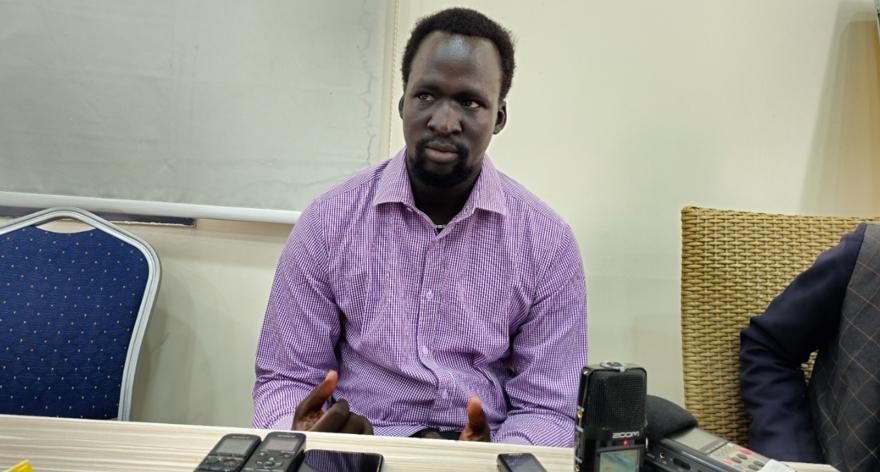Sheila Ponnie
Africa-Press – South-Sudan. Most children in South Sudan are not digitally protected and stand a high risk of falling prey to cybercriminals, warned a South Sudanese cybersecurity engineer.
Robert Ariik said the legal framework that exists is still in its infancy and has yet to be actualised.
“The provisional order that was signed by the president in 2021 is not a complete document yet,” Ariik said during the commemoration of African Child Day in Juba last Friday.
Ariik explained that the provisional order only covers cybercrime and does not specifically address child online safety.
“Yes, children are not protected online, and this is a work in progress in the country.”
“Children technically do what they see adults do on the internet, so in terms of South Sudanese being good digital citizens online, they are not yet,” Ariik said.
The day was marked under the theme “The Rights of the Child in the Digital Environment.”
Ariik described identity theft as one of the risks of cybercrime, adding that people with access to children’s information can create fake profiles on their own behalf and then commit crimes.
“There is cyberbullying and harassment, and children are exposed to inappropriate content, such as pornographic content,” he added.
According to the United Nations Office for Child and Youth Safety Online, when children and young people browse the Internet, they may be exposed to hate speech and violent content, including messages that incite self-harm and even suicide.
South Sudanese children are exposed to hate speech via the unregulated internet.
Ariik now recommends that parents take responsibility for monitoring their children, but said parents and the government must work together to ensure children do not have access to adult content.
“At the moment, the National Communication Authority (NCA) is working to increase awareness through safety communication to ensure that people in South Sudan are using technology appropriately and to eliminate the spread of hate speech, the sharing of misinformation, and disinformation. All of the above can be reduced through raising awareness,” he stated.
According to US News and World Report, cybercrime is any criminal act involving a laptop, tablet, or other internet-connected device and the internet.
It mostly involves hacking, where criminals use a variety of other methods to commit fraud. Phishing is one example of how unsuspecting victims can be coerced into voluntarily handing over personal information.
Kizza Timothy, a teacher at African Inland Church Nursery and Primary School, believes that children should not have Internet access.
“In the country, the internet is not controlled, and there is a lot of harmful information being uploaded on the internet; most of the information is insufficient, and the children just keep watching and reading harmful information,” he said.
Rebecca Ayak Tony, a student at African Inland Church Nasuray and Primary School, on the other hand, argued that children should be trained and monitored on how to use digital skills so that they are not abused online.
“There is a need for us, the children, to have access to the internet because it helps us research vital information, and the digital world has also introduced us to online studies, which is very helpful,” Ayak said.
Also, she advised parents not to be too strict on their phones when their children are bored and want to use their phones to play games.
On May 20, 2021, President Salva Kiir signed the Cybercrimes and Computer Misuse Provisional Order into law. The order was signed with the intention of combating cybercrime in the country.
According to US News and World Report, cybercrime is any criminal act involving a laptop, tablet, or other internet-connected device and the internet.
It mostly involves hacking, where criminals use a variety of other methods to commit fraud. Phishing is one example of how unsuspecting victims can be coerced into voluntarily handing over personal information.
Source: The City Review South Sudan
For More News And Analysis About South-Sudan Follow Africa-Press






